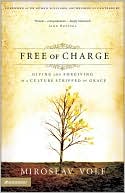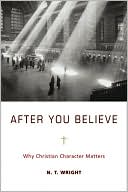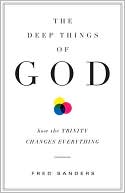Whenever I hear a pundit or politician say—as they do every two years—that this season has seen the nastiest, most negative electoral campaigning in American history, I wonder: “Who was their history teacher?” Because the midterm elections of 2010 ain’t got nothing on the election of 1800.
Saturday, October 30, 2010
Nastiest Election Ever
Friday, October 15, 2010
The Twins of Science and Magic
You will even find people who write about the sixteenth century as if Magic were a medieval survival and Science the new thing that came in to sweep it away. Those who have studied the period know better. There was very little magic in the Middle Ages: the sixteenth and seventeenth centuries are the high noon of magic. The serious magical endeavour and the serious scientific endeavour are twins: one was sickly and died, the other strong and throve. But they were twins. They were born of the same impulse. I allow that some (certainly not all) of the early scientists were actuated by a pure love of knowledge. But if we consider the temper of that age as a whole we can discern the impulse of which I speak.
There is something which unites magic and applied science while separating both from the wisdom of earlier ages. For the wise men of old the cardinal problem had been how to conform the soul to reality, and the solution had been knowledge, self-discipline, and virtue. For magic and applied science alike the problem is how to subdue reality to the wishes of men: the solution is a technique; and both, in the practice of this technique, are ready to do things hitherto regarded as disgusting and impious—such as digging up and mutilating the dead.
Amazing Church Plant
Tuesday, October 12, 2010
Bonhoeffer Says

I've begun reading Eric Metaxas' excellent biography on Dietrich Bonhoeffer. Bonhoeffer's writing is not new to me, but as I now read of his thoughts and life I find my heart increasingly knit to his. Through routes of my own, I have come to share many of his thoughts. Only his convictions run deeper, and he expresses them far better. Here is one quote that hit me.
Every day I am getting to know people, at any rate their circumstances, and sometimes one is able to see through their stories into themselves--and at the same time one thing continues to impress me: here I meet people as they are, far from the masquerade of "the Christian world"; people with passions, criminal types, small people with small aims, small wages and small sins--all in all they are people who feel homeless in both senses, and who begin to thaw when one speaks to them with kindness--real people; I can only say that I have gained the impression that it is just these people who are much more under grace than under wrath, and that it is the Christian world which is more under wrath than grace.
How To Miss Jesus
- You read the Bible to reinforce what you believe, not challenge what you believe.
- You imagine yourself as the type of person who believes the things you read about.
- You think the things you read are especially applicable for people you know, but not for you.
- You imagine yourself as the hero of the story, not the person or people who are unbelieving. You frequently ask in your heart, “How could these people be so unbelieving?” For instance, when you read the story of the Israelites wandering in the desert you might say, “How could those Israelites grumble about food and drink when they just saw God part the Red Sea?” But you are completely blind to how you grumble at work or home when you’re afraid of losing something.
- You love the attention garnered from your knowledge of the Bible, but give little thought to how you have applied what you have read.
Saturday, September 11, 2010
Bible-Centered or Gospel-Centered
How many times have you read of Jesus’ temptation in the wilderness by Satan and come away thinking “I should commit more Bible to memory like Jesus if I’m to resist Satan’s attacks” or “I should grow closer to God through prayer and fasting so that I can handle temptation”? How about the story of Jesus‘ healing of the paralytic? Generally applications run something like “We shouldn’t be annoyed by the needy and helpless even if they do a cut hole in our roof!” When you read these passages who are you identifying with? When we put ourselves into the story we are Jesus! Isn’t this what we ought to do? Aren’t we Christ-ians? Jesus is after all our example. To be sure, but Jesus is more than our example. Much more. He is our Savior.
The story of Jesus’ temptation isn’t told primarily to give us tips on our duel with the Prince of darkness. This is a David and Goliath moment. The giant is bigger, stronger, scarier than all of us. But Jesus, our hero, our warrior, our deliverer marches onto the battlefield and slays the beast. He did in the wilderness what Israel failed to do, what we all fail to do. The lesson isn’t tactics on how to cross swords with the great Deceiver. The lesson is Jesus fought and won for me.
When Jesus heals the paralytic, it is quite absurd, nay asinine and arrogant, that we place ourselves in the position of the Healer. There are only two positions we can occupy. Either we are the Pharisees who stand in judgment over Jesus (“We know our Bibles. Let us see if this fellow does it by the Book. Oh, blasphemy! Forgiving sins! Outrageous. Only God does that. Yes, yes the poor, paralyzed wretch is doing jumping jacks. No, I don’t know how that was done, but you’re missing the principle of the matter.) and tragically never realize that they need healing and forgiveness. Or we are the paralytic and his friends desperate for healing, desperate to meet the Healer, desperate to hear those words, “Your sins are forgiven.”
So do you know the Gospel, or are you content to just know the Bible?
Saturday, September 4, 2010
The Church Problem is a Man Problem
Dancing in the Minefields
Monday, August 30, 2010
Chan, Driscoll, and Harris
Tuesday, August 10, 2010
False Assumption #4: What's Grace?
What’s wrong with the human race? A popular Christian answer to that question would be pride. And no doubt there is tremendous Biblical as well as practical evidence for the thought. But I’ve begun to wonder if there is a deeper issue than pride. An interesting story was told by David Brainerd, the 18th century missionary to New England Native Americans. Brainerd said that in his preaching to the Indians, conviction over sin seemed to be felt most by the Indians when he was presenting the grace and excellencies of Christ. Now Brainerd was mentored by the likes of Jonathan Edwards and his crowd, and if you know anything of those “New Lights,” as they were called, you know they could bring the thunder when it came to sin. Reading a few entries of Brainerd’s journal will leave the most smug of us deeply convicted over our own godlessness, for Brainerd was a man fully acquainted (and some would say morbidly acquainted) with his own depravity. In other words, Brainerd’s sermons on sin were not soft and light. Yet it was not discoursing sin that produced conviction. Rather, says Brainerd, conviction occurred as he proclaimed the grace of Christ to suffer for that sin.
Too good to be true. Brainerd’s testimony seems to suggest there’s more than pride at work in the human heart. Perhaps, we can’t admit our messed upness because we don’t believe, we can’t believe that there is actually a grace in the world that would look on our ugliness and make it beautiful. That there is grace that doesn’t treat us as we deserve, but instead lavishes gifts on us that we could never earn. That there is a grace that doesn’t even blink at what we ourselves can’t look upon, and then takes the hurt to make the evil into good. Such a grace is just too good to be true.
Grace is a message the world has never heard. It’s a message that they almost never see. They don’t believe it exists. They’ve never even considered the possibility that it could. That’s why the grace of Christ has the power to do what they law (God’s standard of good) could never do. The law can bring conviction of sin, but not like grace. The law points out our flaws, but grace shines hope onto them. The law fills us with guilt over our transgressions. Grace makes us sing about them.
“Amazing grace, how sweet the soundChristians have long thought that step #1 in conversion is understanding sin, and thus the need of evangelists to lead with the law. But perhaps step #1 is understanding grace, so that those living in the fog of unbelief can feel the freedom to come into the light.
that saved a wretch like me.”
Saturday, July 31, 2010
ESV+ app for iPhone
Saturday, July 17, 2010
Breaking Through the Fog: Questions
Offending in an Unoffensive Way. I have a radical question perpetually nagging me. Is it possible to unashamedly present the gospel, to proclaim a message that is fundamentally offensive to the religious and irrelegious (1 Cor. 1:23), to actually offend with that message, and still live at peace with the offended? In another words, is is possible to have only the message (the gospel) offend while the messenger (me) remains thoroughly unoffensive. To a degree, I think it is possible. And the method that helps make it possible is asking questions.
Asking Questions. Questions was Jesus method. When asked a question, he responded with a question. Think of all his questions: “Who do you say that I am?” “What do you ask of me?” “Do you see this woman?” “Why do you call me Lord and do not do what I say?” “What does the law say?” “Which man proved to be a neighbor?” “Why do you call me good?” “Who made me a judge over you?” “Is it lawful to do good or evil on the Sabbath?” And on it goes. So why are questions so helpful? Why did I just ask that question? And why did I just ask the question to follow up the question? Okay, getting a little out of hand. Here are some reasons question asking is so beneficial
1. Questions are an indirect challenge to another’s position - With a question you simply bring up the possibility of their error without flatly calling their ideas rubbish.
2. Questions invite a person to think through their position - A question is really an invite go underneath the surface of their belief.
3. Questions allow us to treat others like real people - Instead of treating people like propaganda machines to be crushed, we treat them like real thinking, feeling images of God. After all, you didn’t come to your position by someone trashing your argument.
4. Questions allow us to assume the best about others - We aren’t talking to morons. Well, not usually. People have genuine reasons for their beliefs, and asking a question assumes that that is true. “I guess I’m not sure why you believe that. Can you explain it to me?” Such a question in itself can be wonderfully winsome.
5. Questions appeal to a most cherished desire, to tell others what I think - Listening is a lost art. I’m not sure it was ever found. People aren’t used to someone genuinely interested in their opinion, or to sharing it without someone constantly trying to one-up them. If you give them that chance, they will love you for it.
6. Questions exude humility - What better befits a Christians attitude than the asking of questions? By asking a question I assume that there is much I don’t know, that I don’t have everything figured out, that another’s voice is more important than my own, that the Spirit’s work on another’s heart and mind is more essential than my words.
Tuesday, June 29, 2010
Hybels, Bono, and Aids
A few thoughts that struck me in this interview.








